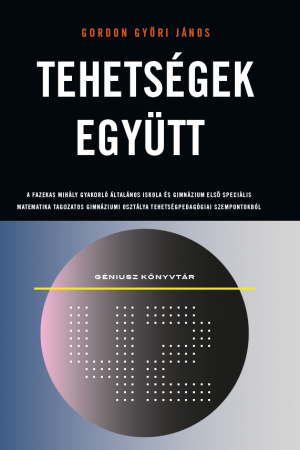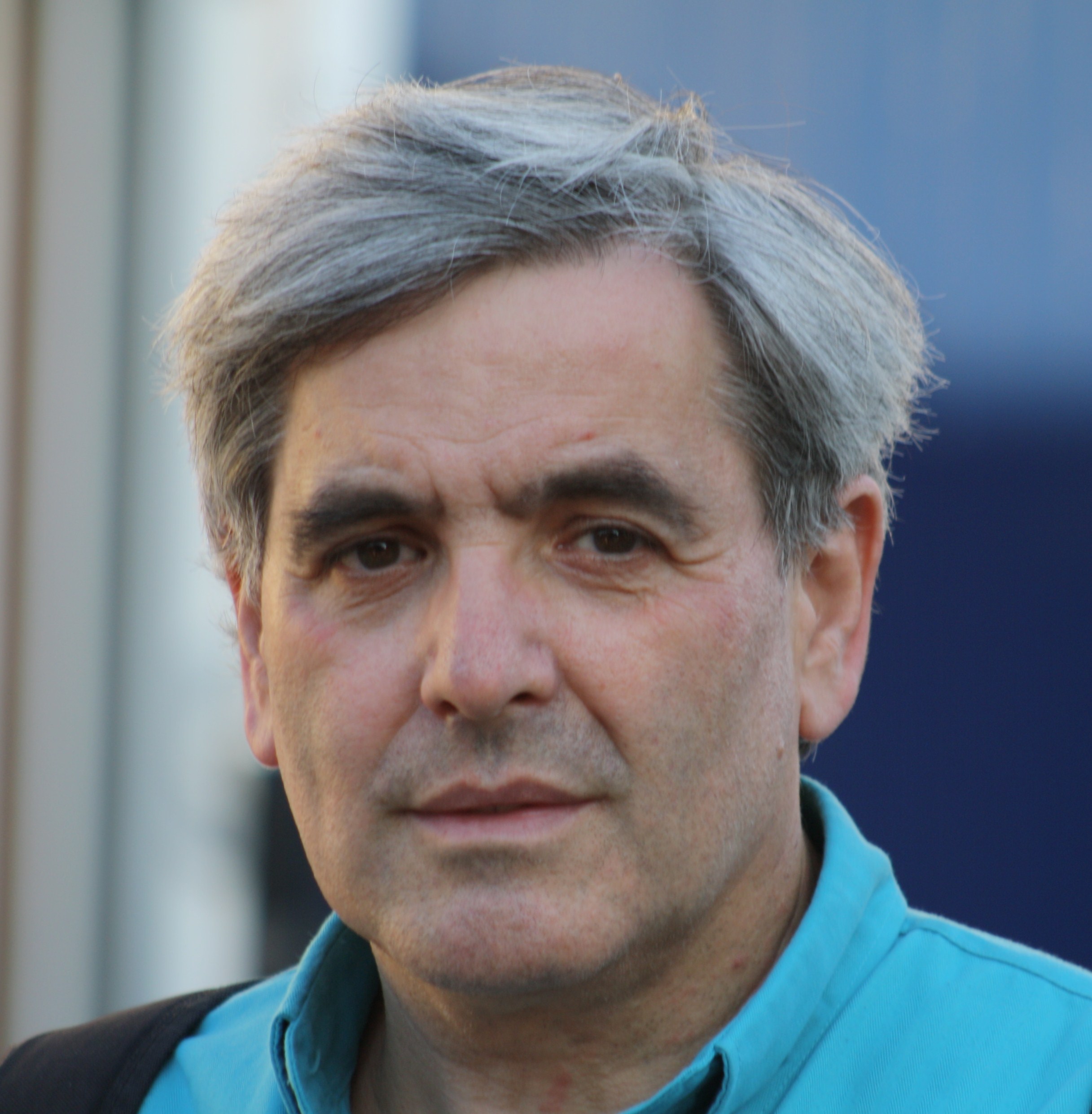We asked Prof. János Győri about his interst in the Hungarian math education particularly in the so called special math classes, a few months ago his book on the same topic was published by Matehetsz.
Csilla Fuszek: What made you interested in special maths programs and in particular the special maths classes of Fazekas Grammar School in the first place? What researches did you conduct on this topic and were there any similar ones? What is your opinion of this form of talent support?

The cover of the book
Prof. János Győri: I have dealt with the issues of giftedness and in particular the education and methods of pedagogical development of talented children for more than a quarter of a century. The nature and development of mathematical talent has always been one of the most interesting topics in talent research and literature and also in public discourse. This may have several reasons: first, the clear social importance of mathematics acknowledged for thousands of years; second, the somewhat mysterious origin of this ability for many and, third, this being a domain that can be identified early and developed well – contrary to quite a number of other talent domains. I myself have never been good at maths, and I have felt bad about it. This is how I became interested in what I could understand, if not of maths, at least of mathematical talent – which I have never even been close to –, and how I could promote the talent development activity of others and the relevant development of talented children in this field through my own pedagogical understanding. I was interested in the special maths faculty of Fazekas Grammar School in particular and the first class of this kind also for other reasons. On the one hand, contrary to others, I have never considered this school a “racing stable”, but a pedagogical workshop of very high quality also in international comparison. I was interested in how that related to the maths faculty, how a talent class of this kind contributed to the school being such an excellent institution. On the other hand, “spec. maths” is a typical example of co-educating gifted children – the subject matter of so many domestic and international supportive, and at least as many critical, analyses and opinions. I was interested in what the stakeholders, the talented children themselves, would say about this if asked directly. Finally, in the context of my research, I interviewed the talented adults these talented children became, due to my special interest in the very first Hungarian/Fazekas class of this kind. This has had two reasons. One was my knowledge that at least a dozen outstanding mathematicians, members of the academicians, international prize winners, creators of internationally recognised and used mathematical theorems, and even outstanding members of the mathematical talent support staff of the past 50 years, started their careers there. The other reason why I started to research the talent issues of this class exactly 50 years after their GCSE was that I wondered how a special class of maths talents could be started in the middle of socialism, the Kádár regime – whereas, at least apparently, at a first glance, this diametrically opposed to the prevailing egalitarian society-building philosophy governed by the principle of equality. This was my key interest in my capacity of researcher and, obviously, I had to focus on the very first class to understand this issue. Furthermore, the special maths faculty became one of the most successful forms of Hungarian talent support, rolled out as early as the school year following 1962 in several Budapest and, later on, a dozen of Hungarian schools, active to this day and raising one generation after the other of mathematically talented young Hungarians. So, I was genuinely interested in the beginning of the story, the very first such class. All things considered, however, I was most interested in what the class was like from the inside: how it worked in the (talent) pedagogical sense, what typical social relations and what values prevailed there and how the best in mathematics and the others related to each other – during my research interviews, I asked the members of the first spec. maths Fazekas class, almost 70 years old at the time, to recall these aspects in the first place.
I have hardly conducted any similar research and the same is true of others, internationally: the English-language literature refers to the description of no more than one or two similar Chinese researches where talent support program participants were interviewed about their talent co-education experience in retrospect, 2-3 decades later.
I myself came to two conclusions as a result of the research.
One is that the co-education of talents is not only positive, but also inevitable for optimum development. To use a simple and not even academic simile: who would assume the optimum form of the development of Formula-1 drivers would be to make them practise with the “laymen” most of us are at an early age? Or that the best way for Pavarotti to develop his singing skills would have been to have no similar talents around him? To have no talent workshops? This, however, does not mean that the co-education of talents is equally important and good in every domain, at every age, for each and every child. I have also interviewed former students who quit this spec. maths (“supermaths”) class during the program about their experience. As could be expected, it was not positive and, naturally, this aspect requires as much pedagogical attention as the pedagogy of those for whom co-education with talented students is the most developing, most stimulating medium.
Another, not independent, finding is that it is pedagogically incorrect to create such a co-education environment without having an adequate system of consultants and/or psychologist or at least special assistant teachers in the background. This is a rather challenging situation for excellent or good students and teachers alike, where it is better if the stakeholders can always rely on a professional backup team to provide expert assistance if need be.

Prof. János Győri
Yet another thing I understood thanks to this research is that such highly intensive co-education situations will only have a positive effect also in the long run if the exceptionally talented and the less outstanding, but high-performer children find the forms of cooperation, with the help of their teachers, where they can mutually strengthen and acknowledge each other. In addition to many other conditions, this requires that the highly talented, yet not excellent students feel that the community concerned develops and strengthens them to the maximum extent possible, and it is the best stimulating/developing growth environment for them. It is incredibly hard to create an environment where the highly talented, but not excellent, students can be present and can develop like that – but the nationally outstanding academic staff of the first spec. maths class accomplished this task, thanks in the first place to their history/geography teacher form master, Gyula Komlós.
Other main findings of the research could be listed endlessly, but suffice it to mention one more here: I became convinced that, for certain talented children, in certain fields of knowledge (and maths is obviously one of these), co-educating talents after establishing certain pedagogical circumstances is a most efficient form of talent support. These talent-nurturing forms, however, must be renewed again and again, as the world, the fields of knowledge, the societies and the absorbing markets as well as the circumstances keep changing. It is beyond the scope of my research to compare this form of talent support and the current opportunities, demands and needs, but my impression is that special maths education would require some creative and innovative upgrading to have another equally successful 50 years in Hungary and globally.